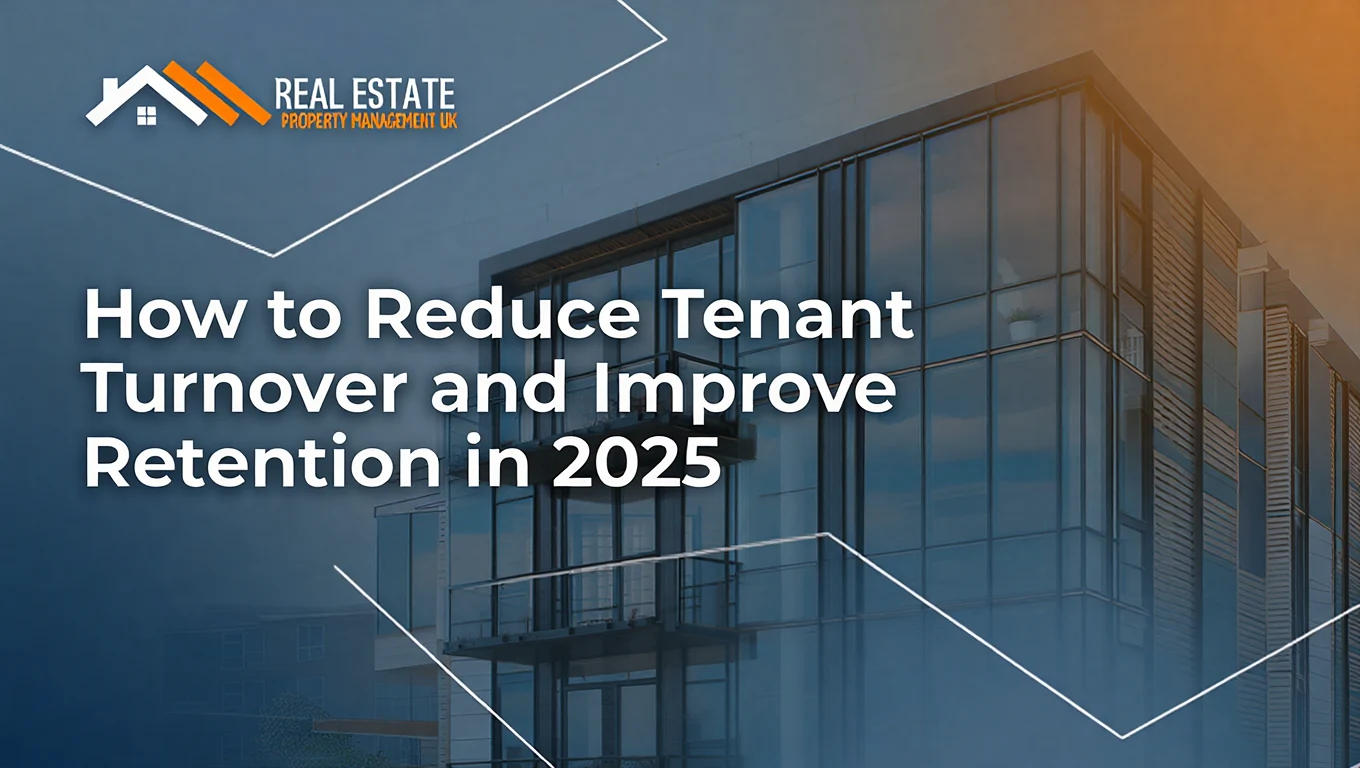Tenant turnover is more than just a temporary inconvenience—it’s a direct hit to your rental income, your time, and your reputation as a landlord. Every time a tenant leaves, you face void periods, advertising costs, deep cleaning fees, and possible renovation expenses. In 2025, reducing turnover is no longer a “nice-to-have”—it’s essential for sustainable property management.
If you’re a landlord in the UK, particularly in busy rental markets like London, Manchester, or Birmingham, understanding how to reduce tenant turnover isn’t just beneficial—it can be your competitive edge.
Let’s explore what really drives tenants away, and more importantly, what will make them stay.
Who This is For

Target Audience: This guide is for landlords, property managers, and real estate investors in the UK who are tired of short-term tenancies eating into their profits. You’re likely juggling multiple units or a growing portfolio and want smoother operations, less hassle, and more predictability in your rental income.
Pain Points:
- Constantly relisting properties
- High turnover-related costs
- Managing problematic tenants
- Lack of tenant loyalty
What You’re Looking For:
- Long-term tenants who pay on time
- Practical, no-fluff advice
- Strategies that are affordable and realistic to implement
- Insights tailored to UK rental laws and tenant expectations
What Sets Us Apart
At Real Estate Property Management, we don’t just manage properties—we build long-term relationships with tenants on your behalf. Our USP? We blend personal service with proven systems to deliver high retention rates, faster lettings, and less turnover stress. We don’t rely on cookie-cutter processes. We get to know your tenants—and keep them happy.
Why Tenant Turnover Hurts More in 2025

A cost-of-living crisis. Rising mortgage rates. Renters with more options than ever.
In 2025, UK tenants are savvier, more selective, and more mobile. If your rental isn’t meeting their expectations—or worse, if your management is poor—they’ll leave, fast.
According to recent data from Zoopla, the average cost of replacing a tenant in the UK is over £1,600 once you factor in lost rent, marketing, and repairs. Multiply that across several properties, and it’s easy to see why minimising turnover is one of the smartest financial decisions a landlord can make.
1. Understand Why Tenants Leave
Before you fix the problem, you have to understand it.
Common Reasons for Tenant Turnover:
- Poor communication or unresponsive landlords
- Property maintenance issues left unresolved
- Rent increases without justification
- Lack of community or neighbourhood dissatisfaction
- Better properties becoming available nearby
Key Insight: Most tenants don’t leave because they want to—they leave because they don’t feel heard, respected, or secure.
Action: Start asking departing tenants why they’re leaving. Track their responses. Over time, patterns will emerge—and so will opportunities to plug the leak.
2. Nail the First 30 Days
Tenant retention starts the moment the lease is signed.
What to do during the first month:
- Provide a clear welcome pack with contact details, rubbish collection info, Wi-Fi setup guidance, and local tips
- Check in after one week to make sure everything is working
- Offer minor customisation (e.g., can they hang artwork?)
- Fix maintenance issues fast—first impressions count
Bold Takeaway: The first month sets the tone for the entire tenancy. Get this part right and you’re halfway to retention.
3. Prioritise Communication—Always
You don’t have to be best mates with your tenants—but you do have to be available, respectful, and clear.
Smart Communication Habits:
- Use a single communication channel (email or portal) to avoid message confusion
- Respond within 24 hours (even if it’s just to say “working on it”)
- Send polite reminders about bin days, inspections, and rent due dates
- Be proactive with annual check-ins: “Is there anything you’d like to bring to our attention?”
Landlord Tip: Tenants stay where they feel respected. Silence is not golden—it’s a red flag.
4. Offer Renewal Incentives
It’s cheaper to keep a tenant than find a new one. Sometimes, a small incentive can make a big difference.
Examples of Renewal Perks:
- Keep rent the same (or a very minimal increase)
- One-time £50 cleaning credit
- Early renewal discount
- Add an upgrade (new showerhead, kitchen appliance, or smart lock)
Psychological Insight: People love feeling like they’re getting a good deal—even if the value is small. Reward loyalty, and you’ll earn it back tenfold.
5. Maintain the Property—Not Just When It Breaks
This one’s obvious, but still widely overlooked. If your tenant is dealing with damp walls, broken fixtures, or unreliable heating, they’re already browsing Rightmove.
Preventative Maintenance Plan:
- Annual boiler and appliance checks
- Seasonal gutter and roof inspections
- A fresh coat of paint every few years
- Fix things before they’re reported
Bold Takeaway: A well-maintained property is a message: “We care about your living experience.” And that message reduces turnover.
6. Screen Tenants Properly
Retention isn’t just about keeping tenants—it’s about keeping the right tenants.
Screening Checklist:
- Employment and income verification
- Previous landlord references
- Credit check
- Short interview (yes, even if through email)
It’s tempting to fill a vacancy fast. But a good tenant is worth waiting for. Taking the extra week to find someone reliable can save you months of stress later.
7. Foster a Sense of Belonging
Here’s where most landlords miss a golden opportunity.
When tenants feel like a property is their home, they’re less likely to leave.
Community-Building Ideas:
- Allow long-term tenants to decorate within reason
- Encourage use of shared spaces (if applicable)
- Drop a holiday card once a year
- Host optional annual tenant meet-ups for multi-unit properties
It’s simple: People stay where they feel they belong.
8. Use a Reliable Property Management Company
This might be the most important tip of all—especially for landlords with multiple properties or other full-time responsibilities.
At Real Estate Property Management, we specialise in low-turnover tenancies that save landlords thousands. Our team doesn’t just collect rent—we manage relationships, repairs, renewals, and resident satisfaction from day one.
When you work with us, you get:
- Fast, respectful communication with tenants
- Regular property maintenance and reporting
- Lease renewal strategies that work
- Less turnover, less stress, and more consistent income
Final Thoughts: Retention is a System, Not a Secret
There’s no magic formula to reducing tenant turnover—but there is a repeatable system.
It starts with empathy, runs on communication, and succeeds through consistency.
If you’re willing to shift from “just a landlord” to a housing partner, tenants will notice—and they’ll stay.
Landlord success in 2025 isn’t about luck. It’s about strategy.
Ready to make tenant retention your new superpower?
Reach out to our property management team and let’s build something stable together.


